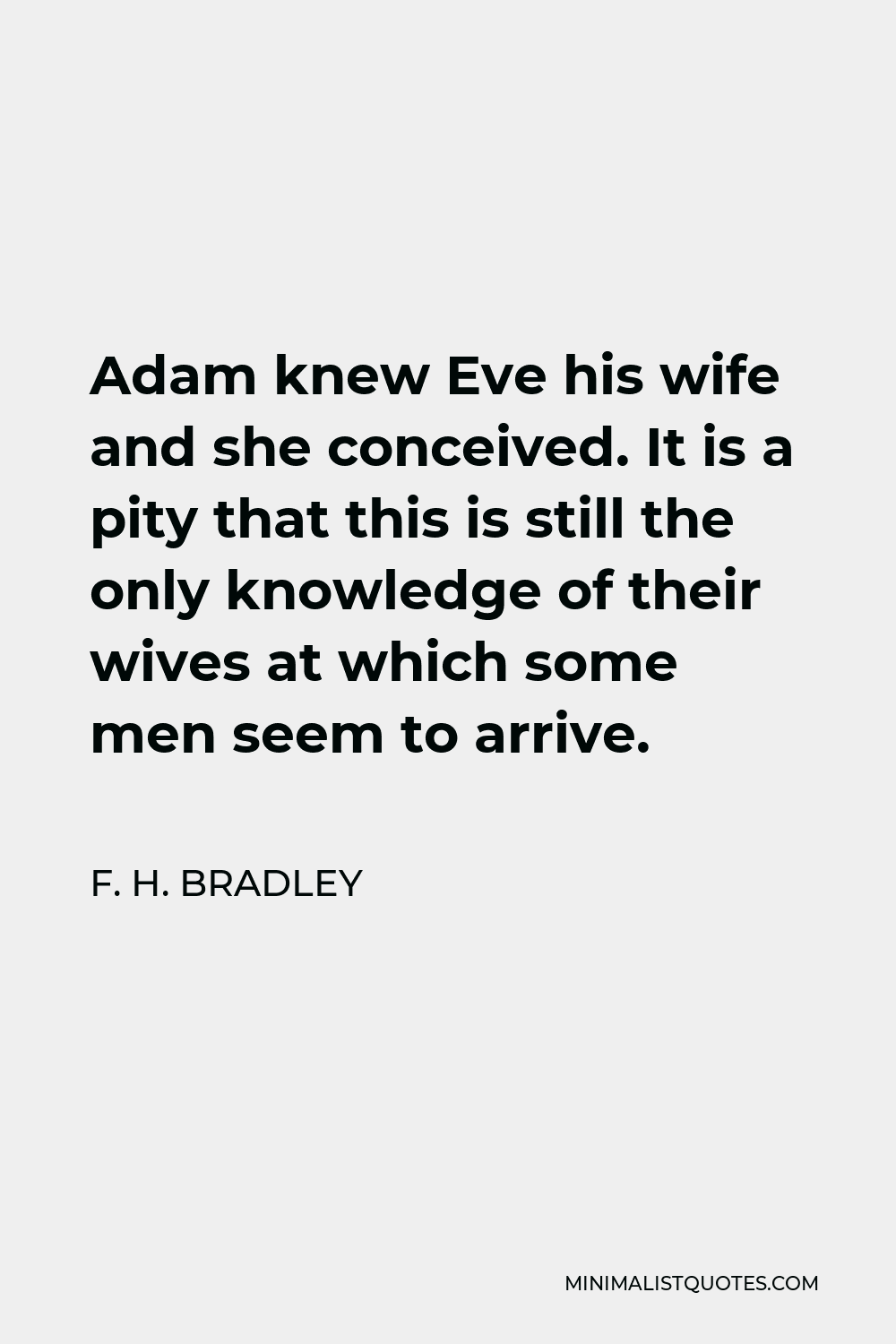There are persons who, when they cease to shock us, cease to interest us.
F. H. BRADLEYAdam knew Eve his wife and she conceived. It is a pity that this is still the only knowledge of their wives at which some men seem to arrive.
More F. H. Bradley Quotes
-





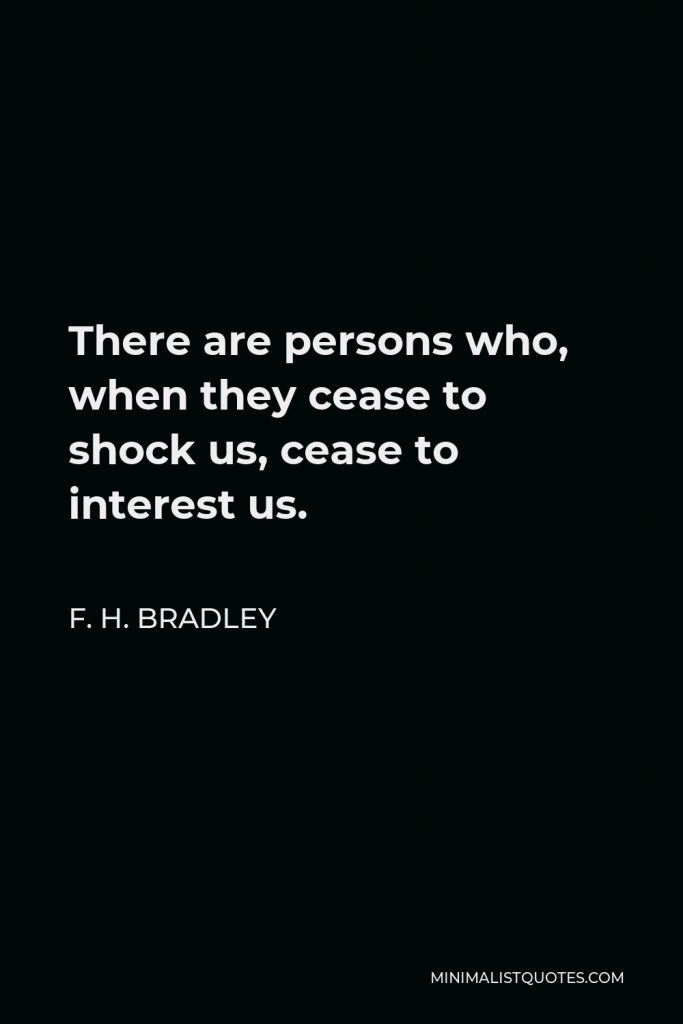

-





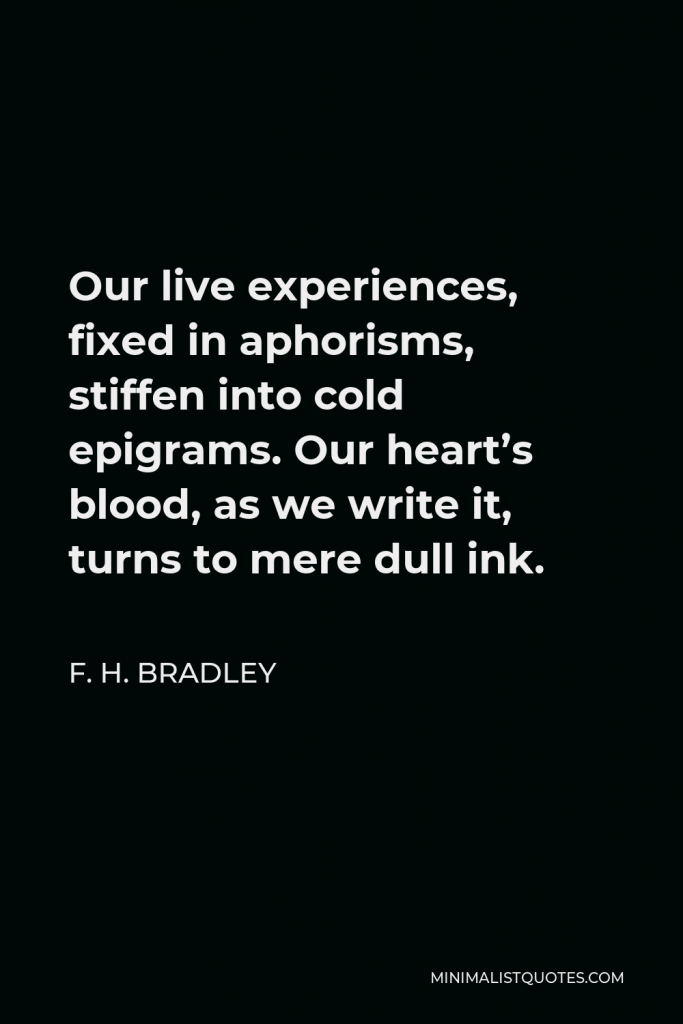

Our live experiences, fixed in aphorisms, stiffen into cold epigrams. Our heart’s blood, as we write it, turns to mere dull ink.
F. H. BRADLEY -





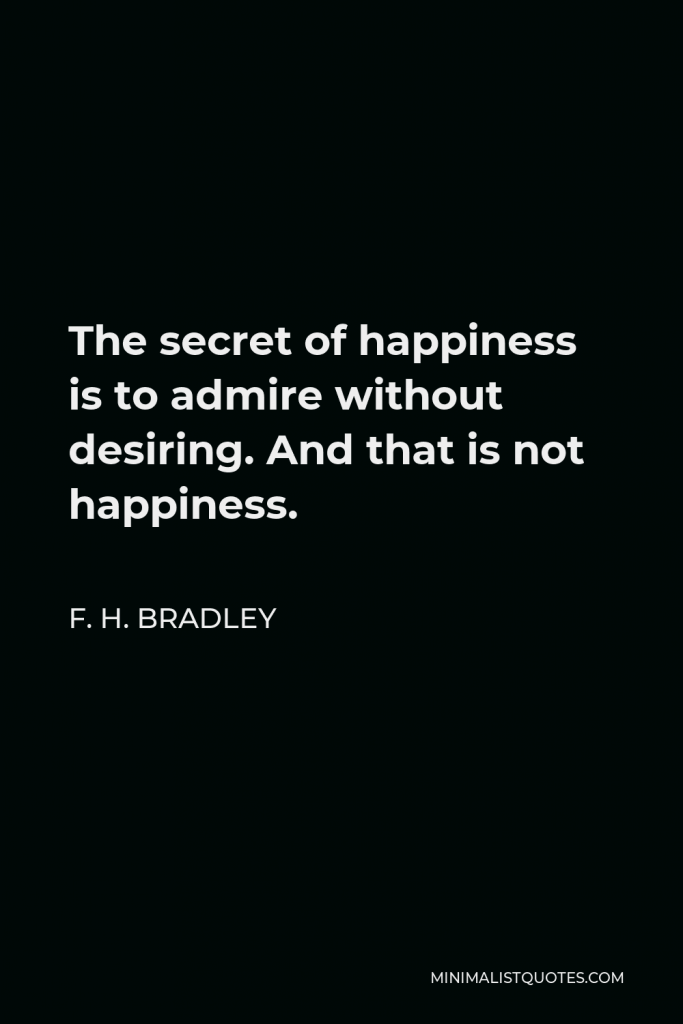

The secret of happiness is to admire without desiring. And that is not happiness.
F. H. BRADLEY -





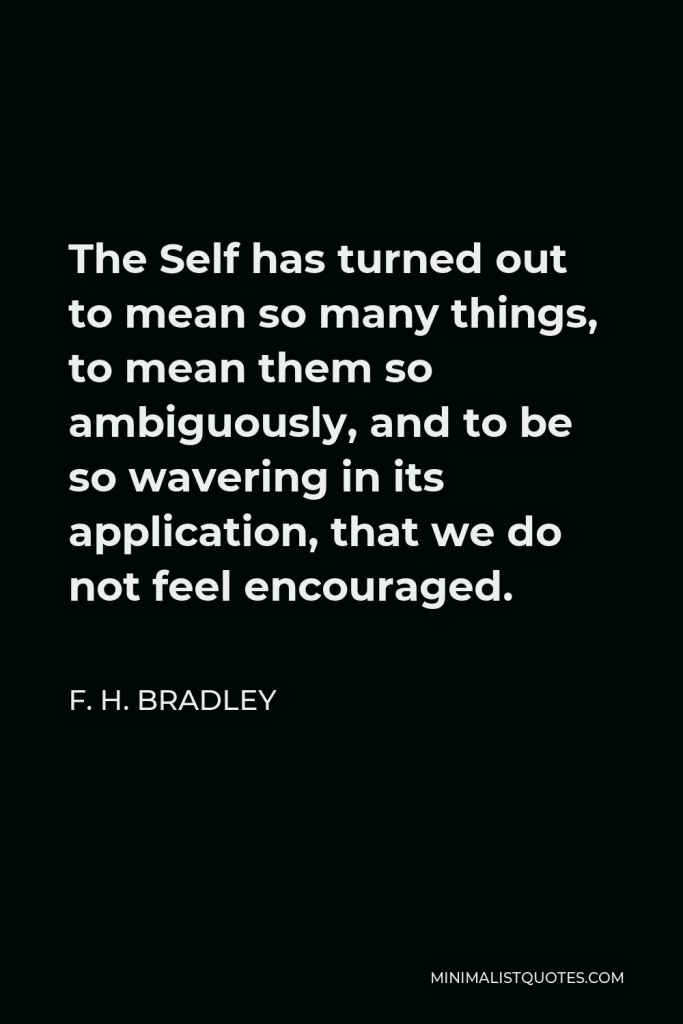

The Self has turned out to mean so many things, to mean them so ambiguously, and to be so wavering in its application, that we do not feel encouraged.
F. H. BRADLEY -





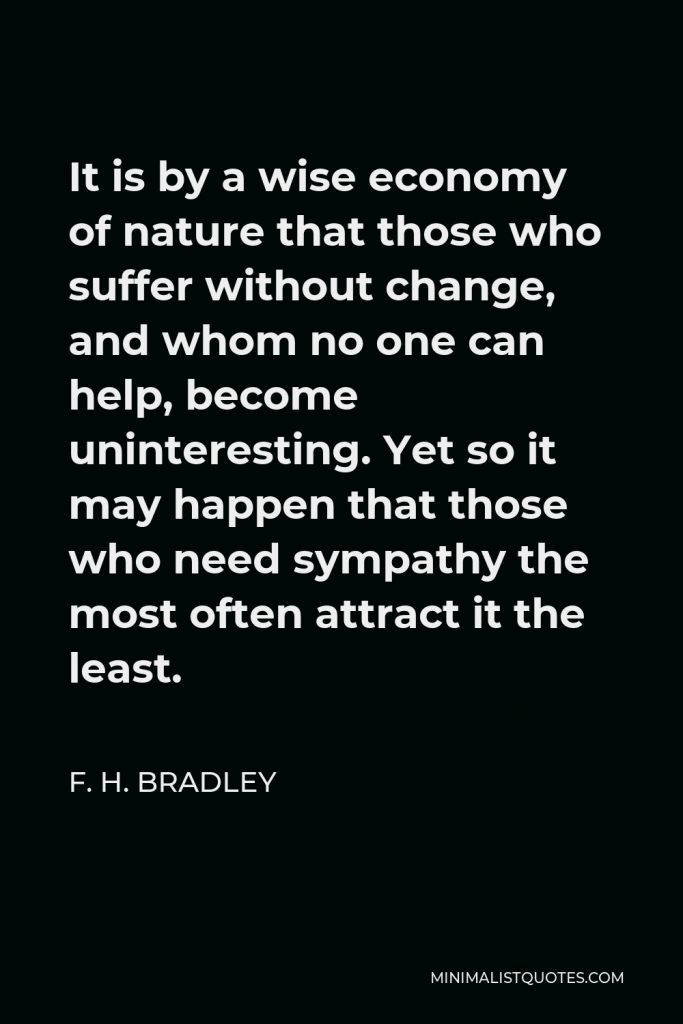

It is by a wise economy of nature that those who suffer without change, and whom no one can help, become uninteresting. Yet so it may happen that those who need sympathy the most often attract it the least.
F. H. BRADLEY -





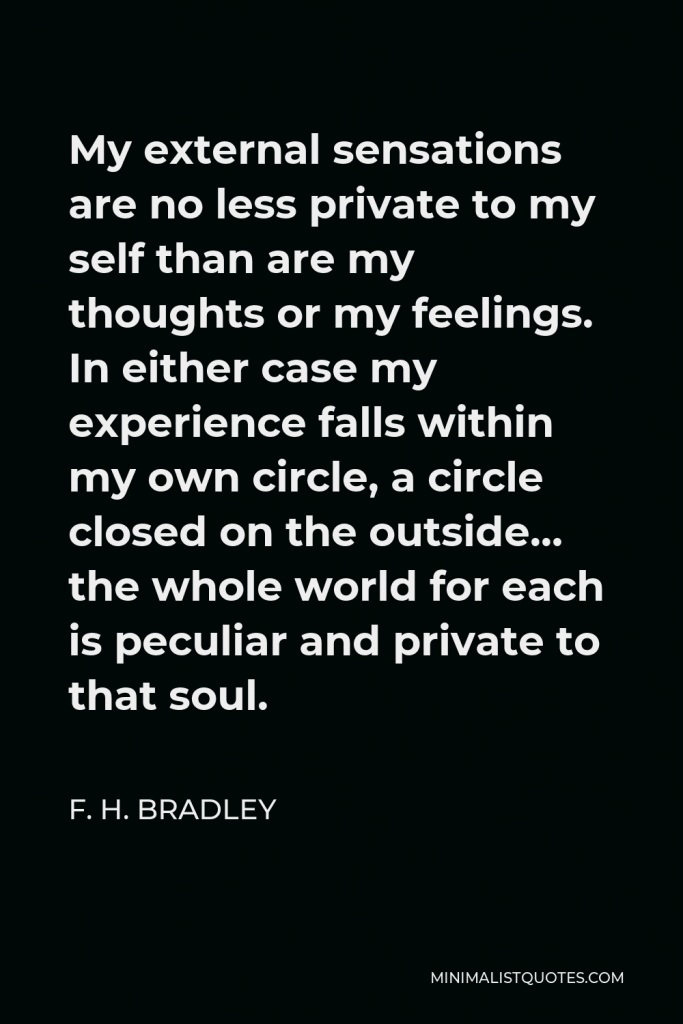

My external sensations are no less private to my self than are my thoughts or my feelings. In either case my experience falls within my own circle, a circle closed on the outside… the whole world for each is peculiar and private to that soul.
F. H. BRADLEY -





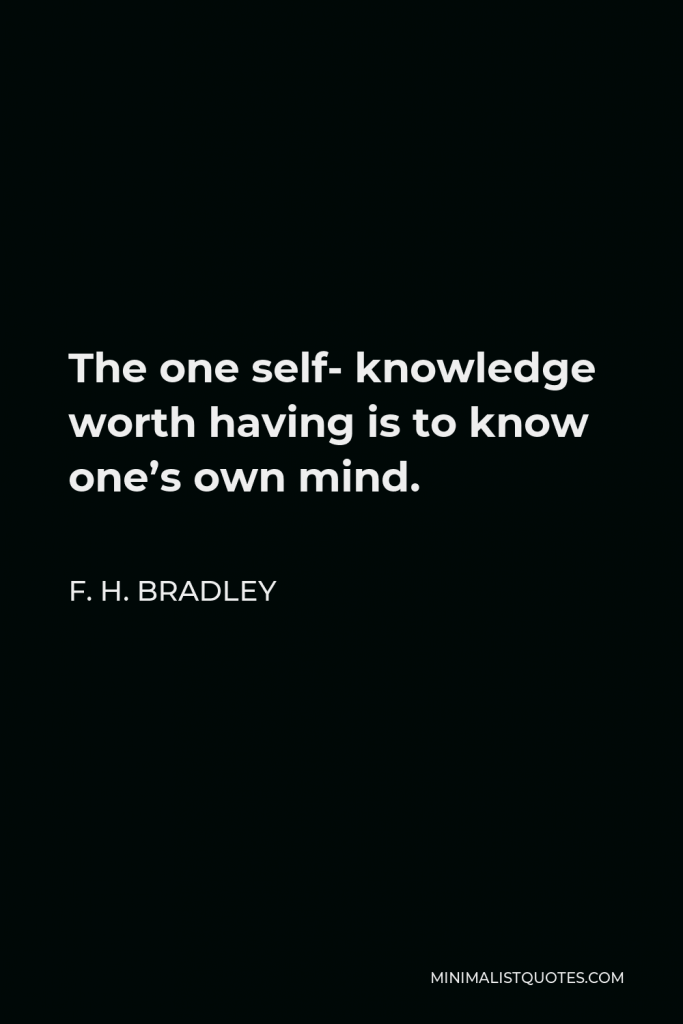

The one self- knowledge worth having is to know one’s own mind.
F. H. BRADLEY -







True penitence condemns to silence. What a man is ready to recall he would be willing to repeat.
F. H. BRADLEY -







The man who has ceased to fear has ceased to care.
F. H. BRADLEY -





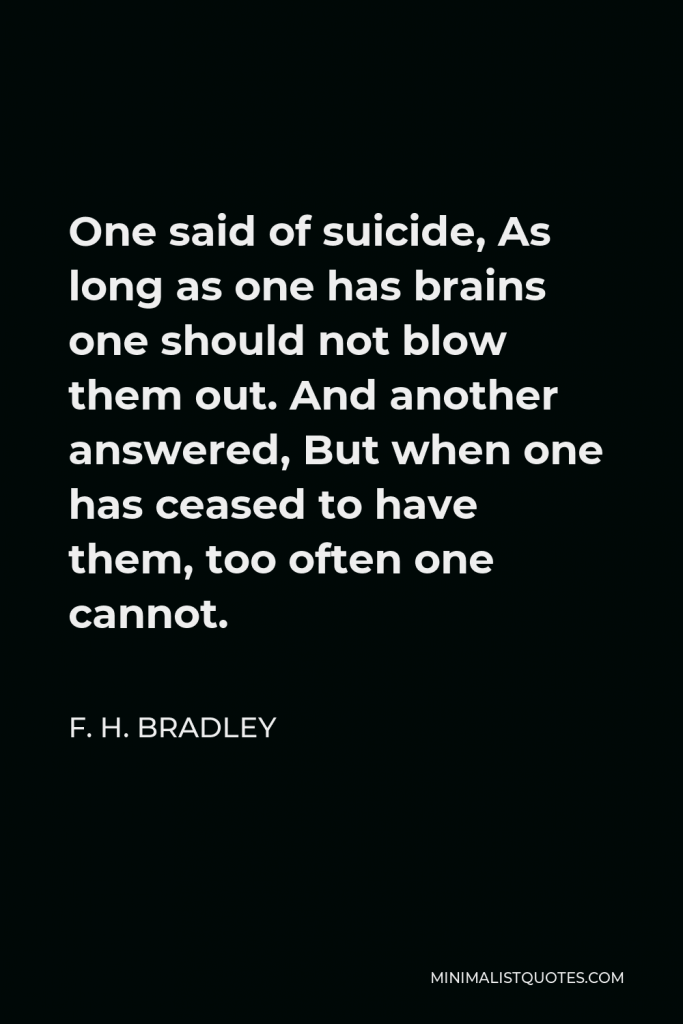

One said of suicide, As long as one has brains one should not blow them out. And another answered, But when one has ceased to have them, too often one cannot.
F. H. BRADLEY -







I will begin with the self-styled “Christian” party, who profess to base their morality on the New Testament. But whether it is really more Christian to follow or to ignore the teachings of the Gospels I shall not discuss.
F. H. BRADLEY -







Few people would not be the worse for complete sincerity.
F. H. BRADLEY -





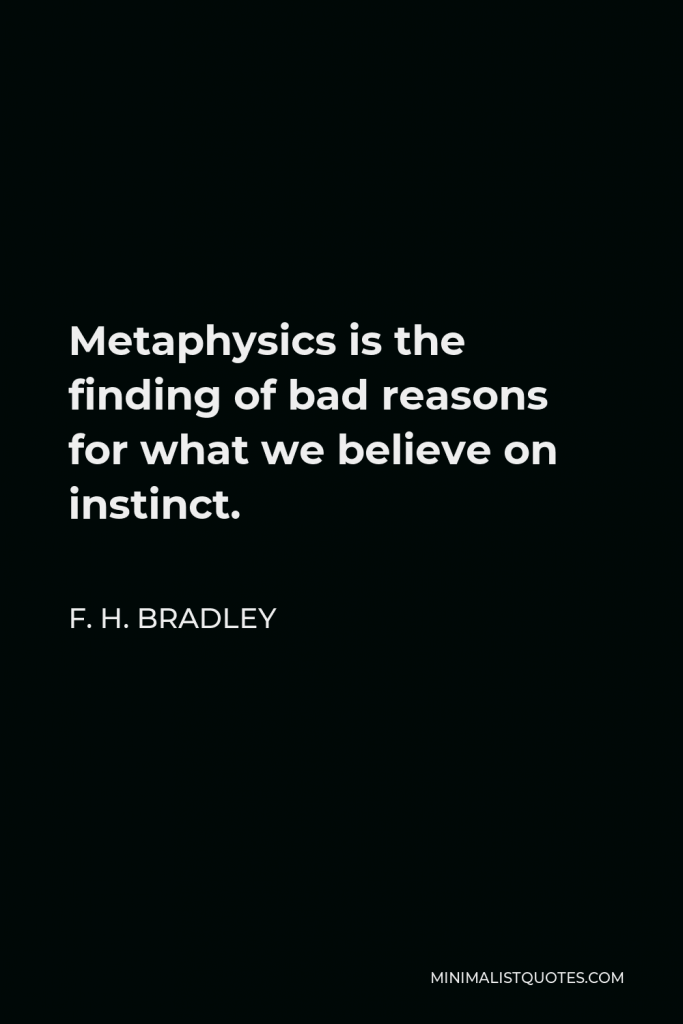

Metaphysics is the finding of bad reasons for what we believe on instinct.
F. H. BRADLEY -





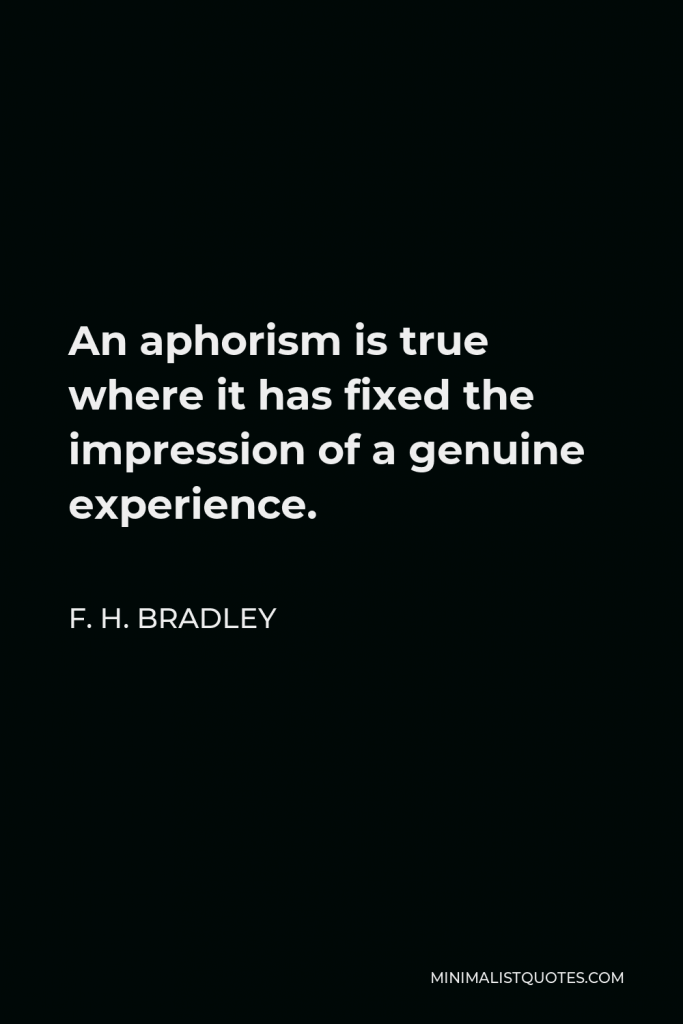

An aphorism is true where it has fixed the impression of a genuine experience.
F. H. BRADLEY -





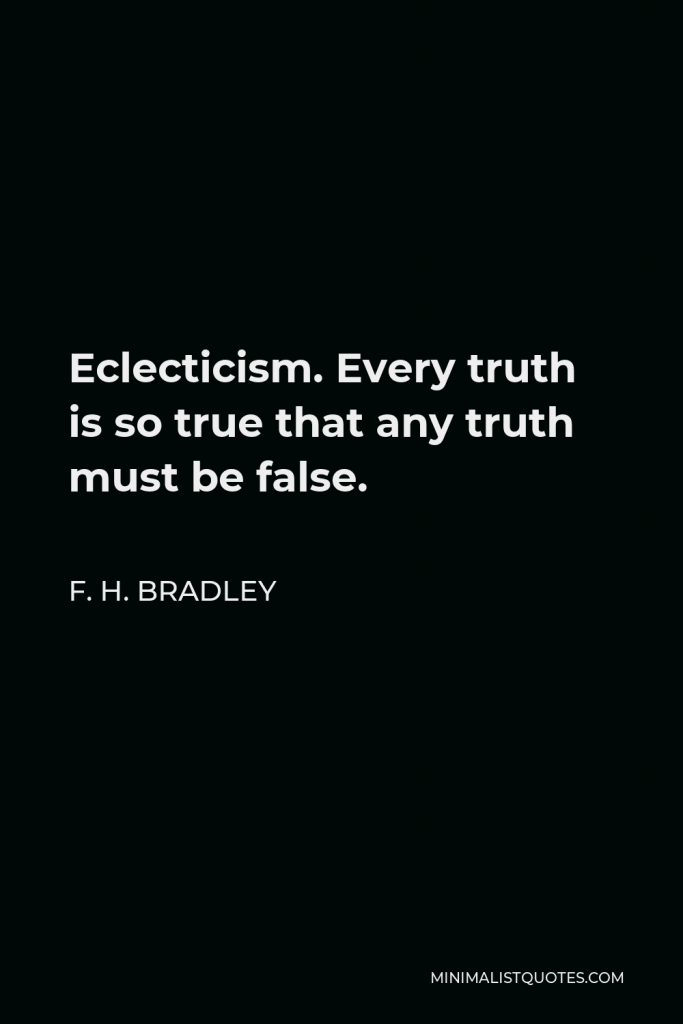

Eclecticism. Every truth is so true that any truth must be false.
F. H. BRADLEY -





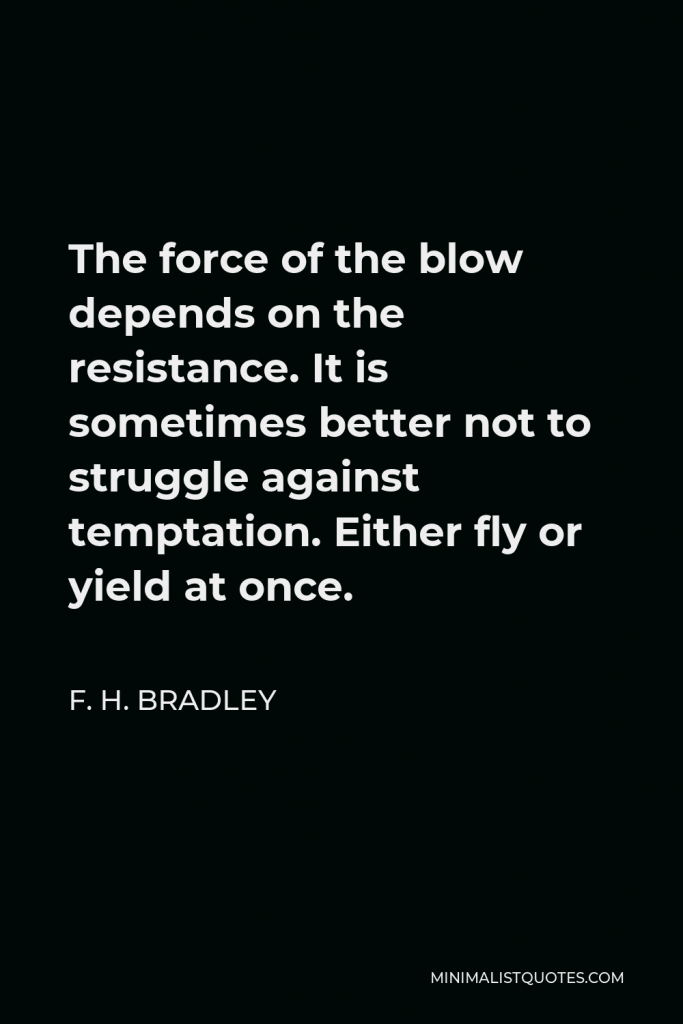

The force of the blow depends on the resistance. It is sometimes better not to struggle against temptation. Either fly or yield at once.
F. H. BRADLEY





